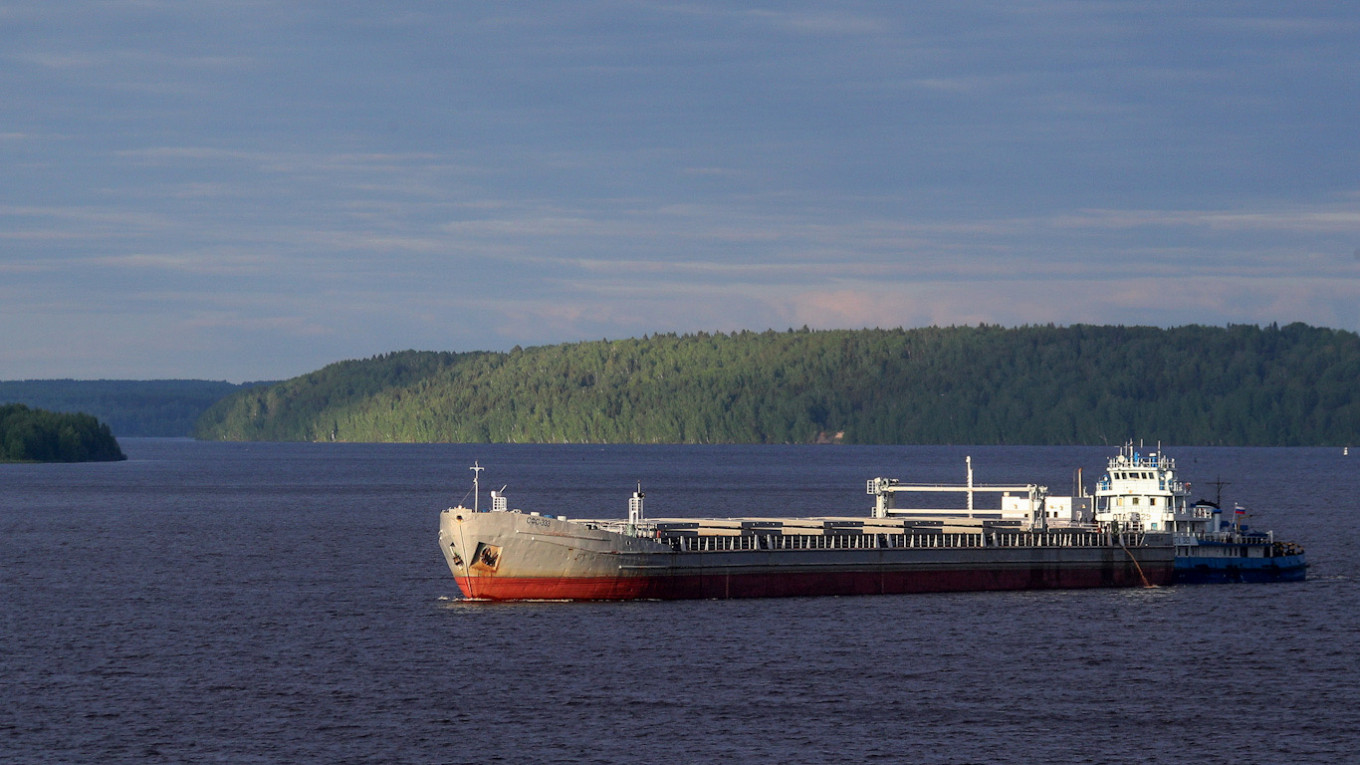
An oil slick the size of a hockey rink has been discovered on the Volga River north of Moscow, authorities said Wednesday, the latest instance of pollution to hit Russia’s waterways this year.
The 5,000 square meter layer of fuel was spotted near the port of Kimry some 150 kilometers north of the Russian capital, Moscow transport investigators said in a statement.
“The discharge of petrochemical products from a vessel currently being identified has presumably occurred,” it said.
On the opposite end of the Volga River more than 1,000 kilometers to the south, residents of the city of Volgograd were reported to have found hundreds of dead catfish washed up on the shore of a local reservoir. They linked it to poachers discarding small fish.
The Volga River slick is at least the second oil spill reported this week and comes less than five months after a massive diesel fuel-tank leak in the Arctic city of Norilsk triggered by melting permafrost.
The oil spill discovery also comes amid continuing questions over what caused a mass die-off of sea creatures, including seals, octopuses, starfish and sea urchins, in the Far East Kamchatka region last month. Scientists said the event, increasingly believed to be caused by toxins from microalgae known as algal bloom, wiped out up to 95% of seabed life.
The governor of the Kamchatka region said this week that scientists and witnesses reported seeing more dead marine animals washing up to the shore south of the initial discovery. He suggested the mass die-off was linked to climate change and other polluting effects on the Pacific Ocean.
Greenpeace Russia said Wednesday that “none of the compounds found in water samples could have caused the serious consequences we’re observing.”
“This means that both man-made and natural theories remain in the search for the cause of the environmental disaster,” the organization said.
